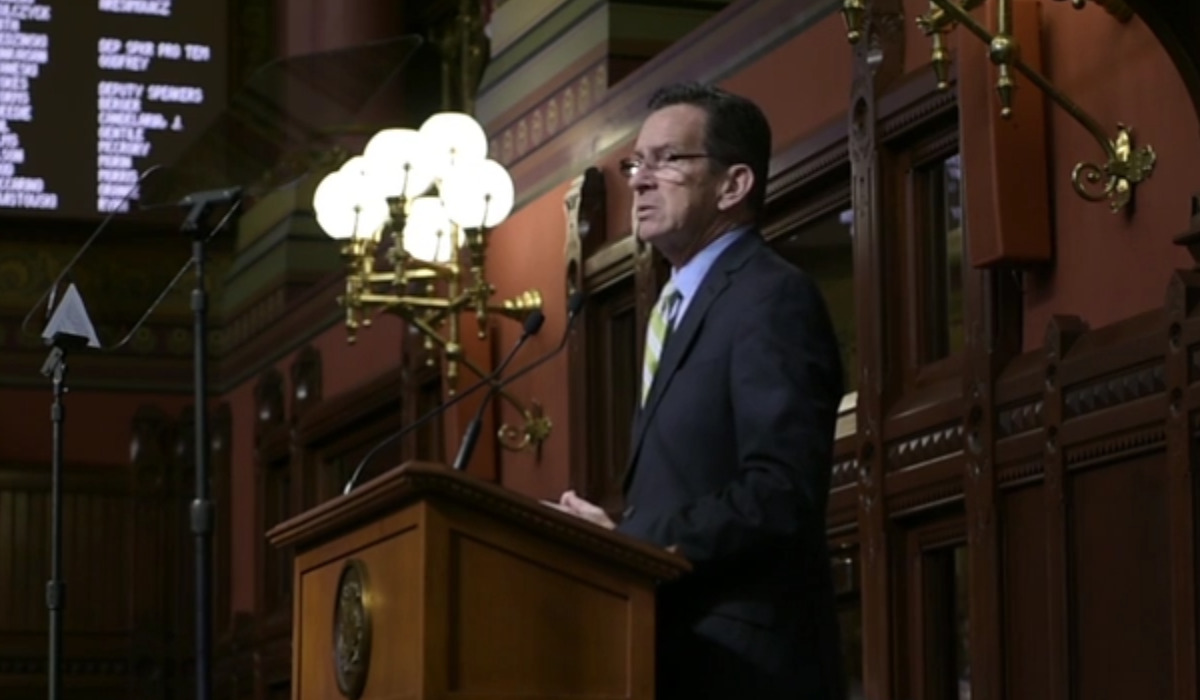Advocates for the more than 16,000 people with intellectual disabilities who are served by the state are reacting favorably to some aspects of Gov. Dannel P. Malloy’s proposed budget, including an increase of about $4 million to, among things, help create more community settings for people now living in state facilities.
They also applauded the closing, at a savings of $1.6 million, of the on-campus fire department at the Southbury Training School — a unit that has hung on year after year as the population has dwindled to fewer than 250 residents and the unused portions of the complex are being mothballed.
But there was despair over the lack of funding for day programs and job training for high school graduates in 2017 and 2018 — as many as 600 young people who are turning 21 and will have completed their federally mandated schooling. For decades, these graduates went fairly seamlessly into the social, recreational, and skill-building programs for young adults. In the last few years, funding cuts have restricted these opportunities.
“So they go from a relatively enriching school environment, with a focus on transitioning to adulthood, to nothing — no programming,” said Shannon Jacovino, of The Arc Connecticut, which has mobilized thousands of families to press Malloy and the legislature for expanded and improved services within the existing budget of the Department of Developmental Services.
Jordan Scheff, the acting commissioner of the DDS, said making up for the lack of funding for new high school graduates is a challenge facing the department, one that requires “efficiencies … cooperation, collaboration and innovation” in other areas of the $525 million-a-year agency.
He said a portion of the nearly $4 million a year that Malloy added would help some of the families on a lengthening waiting list for residential placements and in-home supports. And for the first time in years, DDS would be able to raise the payment rate for a group of private providers. The private, non-profit agencies who have contracts with DDS serve the vast majority of the department’s clients.

Tom Fiorentino of West Hartford, the father of a young man with an intellectual disability, said Malloy’s budget proposal is a “mixed bag” that suggests he’s heard the call of thousands of parents who have attended protests and public hearings at the capital, but that still falls short of reforming the system.
“We are gratified he has proposed positive steps to address the residential waiting-list crisis,” said Fiorentino, a former assistant state attorney general who is president of the board at The Arc Connecticut. “At the same time, we are deeply concerned that his budget contains no funding for new graduates.”
Of the 16,000 clients of DDS, only a little more than 800 live in state facilities — but those locations receive a disproportionate amount of funding for overtime and other expenses. State workers at the largest institutions routinely double their base salaries with overtime. Still, they have the support of the families of the clients they serve. That fervent support has helped to slow the pace of the planned privatization of as many as 40 state group homes. Malloy has pushed these conversions, a trend nationally, as a money saver for Connecticut. Two regional campuses in Meriden and Stratford have closed, but not all the residents have moved into private settings.
Scheff said the closing of the fire department at the Southbury Training School “has been under discussion for some time.”
He said the responsibility of answering emergency calls at the campus will fall to the town of Southbury, which has volunteer fire and emergency-medical units.
“DDS will continue working with the town … to make sure the transition is a smooth one, and that all residents’ emergency needs will continue to be met,” Scheff said.
Jeff Manville, the Southbury first selectman, did not immediately return phone calls seeking comment. Former First Selectman Ed Edelson told The Courant in 2015 that the town expected that coverage of the state campus would eventually shift to the town.
Over the years, the state firefighters based at the Southbury campus have responded thousands of times to assist town crews or to handle calls when those crews were tied up. The town was never charged a fee.
The state firefighters also have inspection and fire-prevention duties. The Courant reported in 2015 that the chief, assistant chief and 12 firefighters shared nearly $600,000 in overtime in 2014. Total costs for the fire department came in at just under $2 million that year.